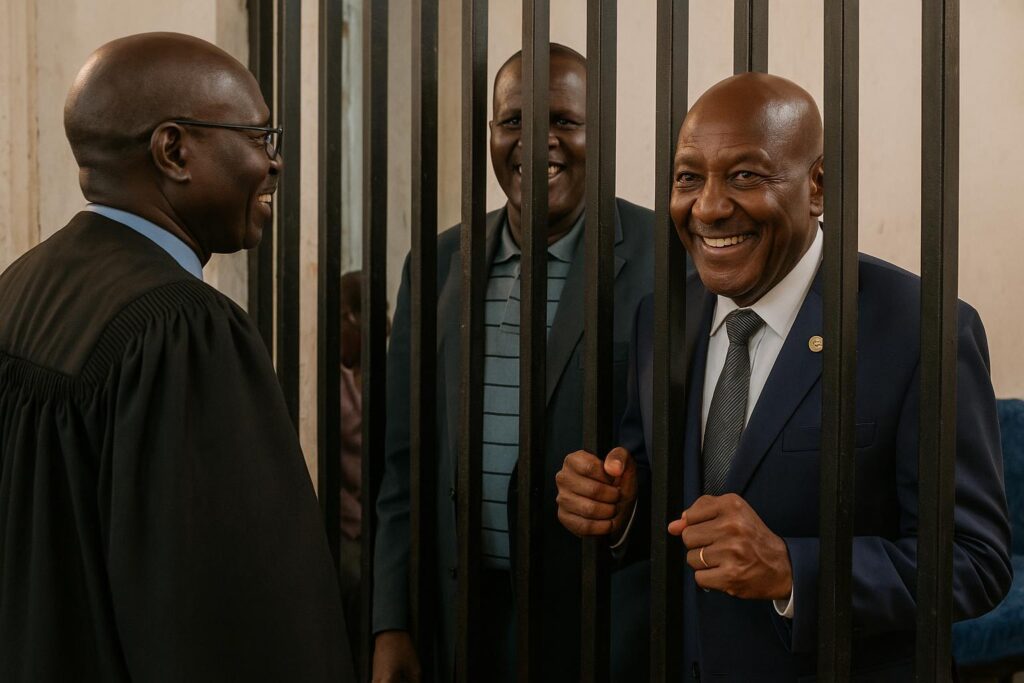High-stakes Courtroom in Juba
A court in Juba has placed Vice-President Riek Machar behind a metal enclosure, confronting charges of treason, terrorism and crimes against humanity. Seven allies share the dock. Their first appearance, after months of silence, instantly became a televised spectacle across South Sudan.
Fragile 2018 Accord at Risk
President Salva Kiir suspended his rival earlier this month, a decision lawyers say collides with the 2018 peace accord that ended five brutal years of civil war. They argue that trying Machar violates power-sharing commitments still anchoring the country’s transitional institutions.
Ethnic Undertones and Public Perception
Analysts note that all eight defendants hail from one community, sharpening perceptions of ethnic targeting. ‘The power struggle has taken an ethnic dimension,’ observed Edmund Yakani, director of CEPO, outside the courthouse, stressing that citizens now read the peace agreement more closely than ever (Yakani).
International Concerns on Stability
Rights organisations warn that a courtroom misstep could reignite front-line tensions, derail refugee returns and chill investment flows. Diplomats publicly back due process while quietly urging restraint, mindful that oil pipelines and humanitarian corridors remain vulnerable to renewed violence.
What Monday’s Adjournment Signals
The bench adjourned proceedings to Monday, giving prosecutors and defence extra days to exchange evidence lists. Observers interpret the pause as space for behind-the-scenes bargaining that could either reaffirm the accord or expose its weakest provisions.
Regional Implications for Central Africa
Neighboring capitals, including Brazzaville, quietly monitor developments. A destabilised South Sudan could disrupt regional trade routes along the Nile corridor and divert attention from shared infrastructure plans. Stability in Juba therefore remains a security interest for the wider Central African Economic Community.


